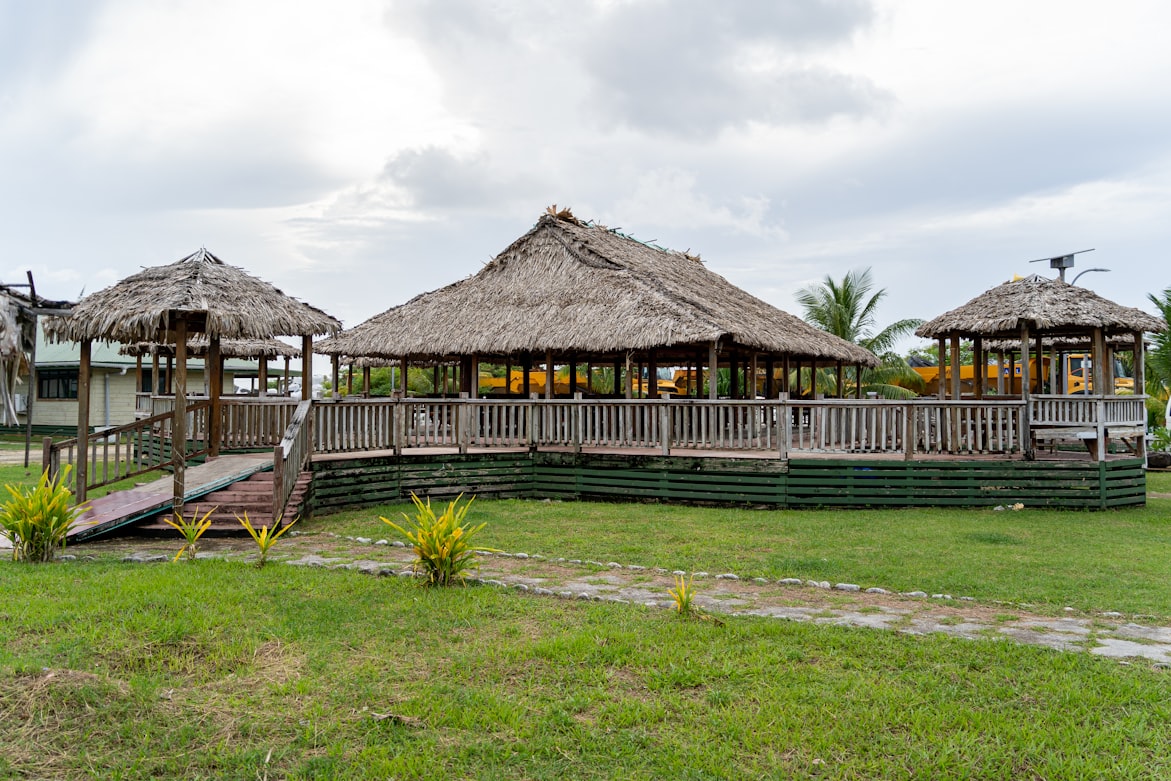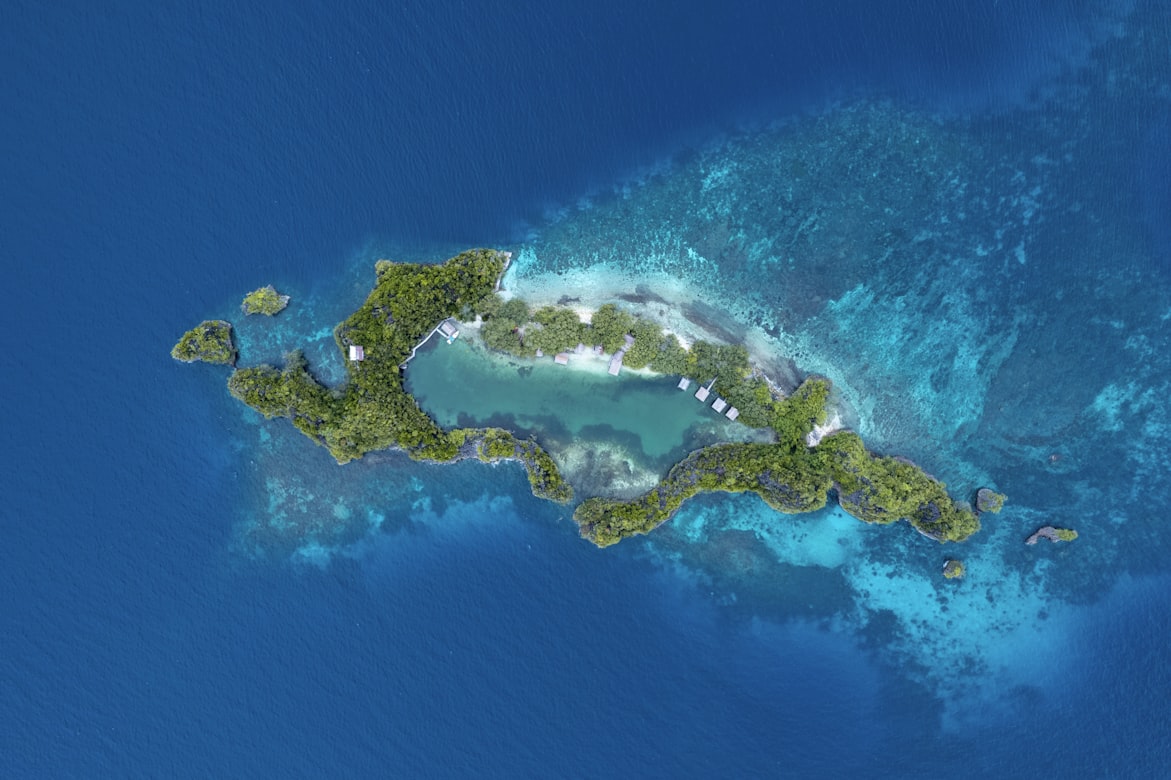Top Attractions
Tuvalu’s allure lies in its unspoiled beauty, community warmth, and tranquil pace of life. The capital island of Funafuti is the main point of entry and home to the Funafuti Conservation Area, a protected marine sanctuary that spans coral reefs, lagoons, and islets. It’s an ideal spot for snorkeling, diving, and observing vibrant sea life like parrotfish, turtles, and even reef sharks in crystal-clear waters.
Visitors can explore Fongafale, the largest islet of Funafuti, by bicycle or motorbike, discovering quiet villages, modest churches, and local gathering spots. One highlight is Teone Church, Tuvalu’s oldest place of worship, which offers a spiritual insight into island life.
Taking a boat trip to outer islets like Fualopa or Tefala provides a taste of untouched paradise, with white-sand beaches, coconut palms, and a complete escape from crowds. Vaiaku Lagoon, with its calm waters and sunset views, is also a serene spot for reflection and swimming.
Local Dishes
Tuvaluan cuisine is simple, hearty, and based on local ingredients such as fish, coconut, taro, and breadfruit. Pulaka, a swamp taro grown in pits, is a dietary staple and often served boiled or mashed alongside fish or pork. Freshly caught reef fish, grilled or boiled in coconut milk, is a common mainstay.
Another beloved dish is palusami, a mixture of taro leaves and coconut cream, sometimes stuffed with fish or meat and baked underground. Toddy, the sweet sap of the coconut palm, is consumed fresh or fermented into a mildly alcoholic drink, while kaleve, a syrup derived from the toddy, is used as a sweetener or dessert.
Imported items like rice, canned meats, and noodles are common in daily meals due to limited agricultural space. Despite the simplicity, meals are deeply communal and often accompanied by laughter, music, and storytelling.
Transportation Tips
Getting around Tuvalu is straightforward due to its small size. On Funafuti, the main mode of transport is by scooter or bicycle, both of which can be rented cheaply and are ideal for exploring the length of the islet. There are few cars and no public transportation system, which adds to the peaceful charm.
For travel between islands, transport is limited to inter-island ferries or cargo boats, which run infrequently and may be affected by weather conditions. Travelers are encouraged to plan inter-island trips well in advance and expect basic facilities on board.
There is only one airport — Funafuti International Airport — and flights are limited, typically operating a few times per week from Suva, Fiji. Walking is also a great way to explore Funafuti’s flat terrain and engage with the local community.
Budget Travel Tips
Tuvalu can be visited on a modest budget, though prices are slightly higher due to the cost of imported goods. Basic accommodations range from $50–$100 USD per night, with options like guesthouses and family-run lodgings providing meals and simple comfort.
Meals from local vendors or guesthouses cost around $5–$10 USD, especially if you’re open to enjoying rice, fish, and local greens. You can save money by eating with locals or asking your accommodation to include meals in your rate.
Since there’s little public transport or tour infrastructure, the best way to explore is on foot or bicycle. Local boat trips to outer islets can be arranged informally and are more affordable when shared with other travelers. Always carry cash in TVD or AUD, as card facilities are extremely limited.
Safety Info
Tuvalu is one of the safest countries in the world, with a tight-knit community and extremely low crime rates. Travelers are likely to find the locals warm, helpful, and deeply respectful.
There are no major health risks, but basic medical facilities are limited — more serious medical issues may require evacuation to Fiji. Travel insurance that includes medical evacuation is highly recommended.
Tap water is not considered safe to drink, so stick to boiled or bottled water. Mosquitoes are present, so bring repellent and long sleeves, especially in the evenings. Cyclones can occur during the wet season, so stay updated on weather conditions and avoid unnecessary travel during storm warnings.
Cultural Etiquette
Tuvaluan culture is communal, respectful, and deeply rooted in tradition. Greetings are important — a smile and a polite “Talofa” (hello) are always appreciated. When entering a village or someone’s home, it is customary to remove shoes and ask permission before taking photos.
Modest clothing is expected — women should avoid shorts or low-cut tops, especially in village areas or during church services. Sundays are highly respected as a day of rest and worship, with most activities paused, and visitors should be mindful not to disrupt this tradition.
Gift-giving is common in social exchanges, and offering a small token of appreciation — such as food or a practical item — is welcomed if staying with a local family or joining a gathering.
Travel Style Fit
Tuvalu is perfect for slow travelers, cultural explorers, eco-conscious travelers, and solitude seekers. If you're the kind of person who finds joy in quiet beaches, warm hospitality, and meaningful conversations rather than luxury resorts or nightclubs, this is your paradise.
It suits couples, solo travelers, and digital detoxers looking for an immersive, screen-free retreat. Tuvalu requires travelers to be flexible, respectful, and content with the basics — and in return, it offers genuine human connection, profound peace, and unforgettable simplicity.

Best Time to Visit
The best time to visit Tuvalu is during the dry season from May to October, when temperatures are warm, skies are clear, and humidity is lower. This period is ideal for beach activities, snorkeling, and boat trips.
The wet season from November to April brings more rain, higher humidity, and potential tropical storms, though downpours are often brief. Tuvalu is vulnerable to climate-related sea-level issues, so checking local weather and travel advisories is recommended before planning your trip.
Festivals such as Tuvalu Day (October 1) offer an excellent window into traditional music, dancing, and community celebrations, showcasing pride in local heritage.
Accommodation Recommendations
Budget travelers can stay at Filamona Lodge or Vaiaku Lagi Hotel’s budget rooms, which offer clean, fan-cooled rooms with shared bathrooms for around $50–$70 USD per night. These places often include breakfast and have friendly staff who can help organize excursions.
Mid-range travelers might prefer the standard rooms at Vaiaku Lagi Hotel, the country’s main hotel located near the lagoon. It offers air-conditioned rooms, private bathrooms, and a restaurant serving local and international fare, generally priced around $100–$150 USD.
Luxury travelers won’t find five-star options in Tuvalu, but Te Namo Resort (if available) or premium rooms at Vaiaku Lagi offer the most comfort with lagoon views, ensuite facilities, and a peaceful atmosphere. For a more immersive experience, some travelers also arrange homestays with local families for a personalized and authentic connection.
Languages Spoken
The two official languages of Tuvalu are Tuvaluan and English. Tuvaluan, a Polynesian language, is spoken in everyday life and used in traditional ceremonies, while English is taught in schools and used in government and legal matters.
Most people in Funafuti speak English well enough for basic conversation, especially among the younger population and in tourism-related services. Learning a few Tuvaluan phrases, like “Fakafetai” (thank you), can go a long way in building rapport with locals.
Currency
Tuvalu uses the Australian Dollar (AUD) as its official currency. There is no ATM on the island, and credit card acceptance is extremely rare, so you must bring enough cash for your entire stay.
Some guesthouses and shops may accept wire transfers or prepayments via bank transfer, but most transactions are cash-based. Bring smaller denominations, as change for large bills may not always be available.
Common Traveler Mistakes to Avoid
A common mistake is arriving without enough cash, as there are no ATMs and very few places accept credit cards. Travelers also often underestimate how basic the infrastructure is — internet is slow, medical care is limited, and options for food and drink are fewer than in more developed destinations.
Another error is attempting to travel spontaneously to the outer islets — boat trips require advance planning, local connections, and sometimes government permission. Also, don’t schedule visits during important religious holidays or Sundays without checking, as most services shut down.
Finally, underestimating the importance of cultural sensitivity, such as dressing modestly or respecting communal customs, can unintentionally offend. Visitors should adapt to the local rhythm and engage with humility and curiosity.
Essential Apps & Tools
Due to limited internet, offline tools are a must. Maps.me is helpful for offline mapping, even though the island is small. Google Translate with Tuvaluan downloaded (if available) or set to English will assist in basic communication.
WhatsApp is widely used for local communication and arranging boat transfers or homestays. A currency conversion app like XE is useful for tracking expenses in AUD. Mobile service is available via Tuvalu Telecom, and you can purchase a SIM card for local data if needed — though speeds are slow and coverage is island-specific.
Offline reading materials, podcasts, or downloaded films can be great to have on hand during quiet evenings.
Suggested Itinerary Styles
A 5- to 7-day stay is ideal for experiencing Tuvalu’s slow-paced charm. Spend your first day in Funafuti, visiting the local market, the runway park, and the lagoon’s edge for a sunset swim. On day two, explore the Funafuti Conservation Area with a guided snorkeling or diving tour.
Day three can include a boat trip to Fualopa or Tefala islets, where you can picnic, snorkel, and enjoy untouched nature. Use the fourth day to attend a church service, visit the Teone Church, and interact with locals. If you stay longer, consider another outer-islet trip or join a local dance or handicraft demonstration arranged by your host.
The key is to slow down, unplug, and embrace island time — the rewards come through relationships and reflection, not rushing.
Fun Facts
Tuvalu is the fourth smallest country in the world by land area and one of the least visited, often receiving fewer than 2,000 tourists per year. Its airport doubles as a recreational space — children play soccer and families gather on the runway when no flights are scheduled.
The country is also among the most climate-vulnerable nations, with much of its land just a few meters above sea level. Tuvalu was the first country to sign the Paris Climate Agreement, and its voice is prominent in global climate justice movements.
Despite its remoteness, Tuvalu gained internet fame for leasing its “.tv” domain to media companies, providing a key source of national revenue.
